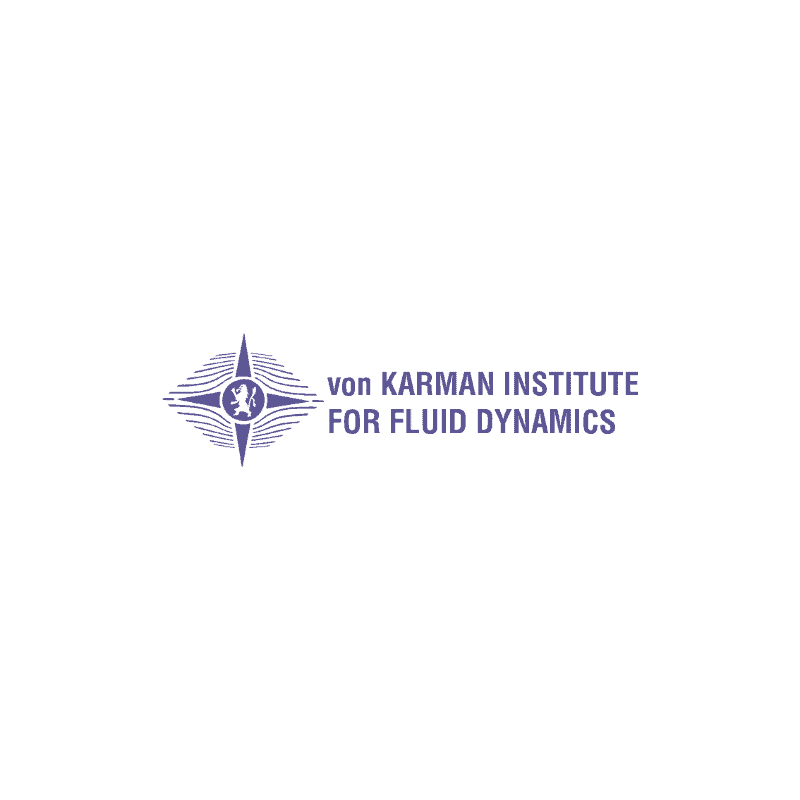The von Karman Institute for Fluid Dynamics, VKI, is an International Not for Profit Association (INPA) incorporated under Belgian Law as an independent legal person.
The VKI was founded under the name of TCEA (Training Center for Experimental Aerodynamics) in 1956, under the auspices of the Advisory Group for Aeronautical Research and Development (AGARD) of NATO by the action of Professor Theodore von Karman, in his position as chairman of AGARD. He proposed the establishment of an institution devoted to training and research in aerodynamics which would be open to young engineers and scientists of the NATO nations. It was strongly felt that this form of international undertaking would fulfil the important objective of fostering fruitful exchanges and understanding between the participating nations in a well-defined technical field, and the Belgian Government agreed to host the projected new center in its Aeronautical Laboratory in Rhode-Saint-Genese, bearing in mind the existing facilities. Negotiations between the governments of the USA and of Belgium resulted in a formal agreement between the two governments, reached in Belgium in September 1956 and signed officially in Paris on December 15, 1956. Later the support of the Institute was shared, with different contributions, between a larger number of NATO countries Theodore von Karman acted as the Institute’s Chairman until his death in 1963. It was then that the name of the organisation was changed in memory of its founder.
Mission / Objectives
VKIs mission, as defined by its statutes, is:
- to promote the training of scientists and engineers from the NATO countries in the field of fluid dynamics; The Research Master in Fluid Dynamics (master after master level) received the NVAO accreditation. NVAO ensures the quality of educational programmes following the Bologna agreement for higher education in Europe
- to contribute to the dissemination of knowledge in the field of fluid dynamics
- to undertake, to instigate and promote studies and research in the field of theoretical, numerical and experimental fluid dynamics
Scientists and engineers coming from other non-NATO countries, in accordance with the policy of NATO, can be authorized by the Board of Directors to participate in the activities of the Institute.
The missions of the institute are fulfilled by:
- Running training programmes for scientists and engineers at undergraduate, post-graduate, after-master, doctoral and post-doctoral levels
- Organising and hosting continuing education programmes like Lecture Series, organising and participating to international conferences
- Performing research in various fluid-dynamic fields in the context of training programmes, following the principle of “training in research by active research” (the main programme being the doctoral one), as well as performing research for industrial partners, research agencies or other organizations, often involving industrial consortia, and conducted under specific research contracts or grants
Location
The VKI is a non-profit international research and educational establishment, located in Rhode-Saint-Genese, at about 15 km south of Central Brussels, Belgium.
Programmes / Activities
Recent programmes and activities in aeronautics cover the following fields:
Flight and space propulsion: Fluid hammering in satellite propellant lines, Flash evaporation in liquid propulsion, Pressure oscillations in solid boosters, Deformation of thermal protections, Cryogenic science
Flight and Ground testing for Aerospace: CATE in-flight experiments, strategic ground testing approach for highspeed re-entry, Optical spectroscopy, original tomography methods, characterisation of noise level, Static and dynamic stability study of the ARV re-entry vehicle
Small satellites: Cubesats to perform atmospheric research as well as in-orbit technology demonstrations
Aeroacoustics: Simulation methodologies for airframe noise modelling, theoretical and experimental investigations of ventilation noise in ducted systems), modelling and control of the noise emitted by the aircraft Environmental Control Systems, application of porous materials to reduce the interaction noise in Contra-Rotating Open Rotor (CROR) propulsion systems Instrumentation development: Airborne Research using PIV, Icing detection by non intrusive optical technique, design and manufacturing of cooled probes for measurements at engine temperature, qualification of the flow in a new steady state model-turbine rig, Development of tip timing methods
Physical and numerical modelling: COOLFluiD-2 (CF2) platform, wall boundary condition model with variable catalytic efficiency and radiative equilibrium, MHD solver for Space Weather applications, new Finite Volume solver for the full Maxwell equations, innovative Monte Carlo-based algorithm for radiation transport, RANS and LES models into the Residual Distribution solver, rarefied gas dynamics, satellite application, Hyperwall prototype
Design and optimization: Optimization on axial fans, radial and axial compressors, axial and radial turbines and automotive fans, development of a Total Integrated Design and Optimization Software for Turbomachinery
Low pressure compressors and turbines: roughness, transition, separation and boundary layer control, influence of Reynolds number, free stream turbulence, blade loading, periodic inlet wakes, technological effects, aerodynamics and stability of low pressure compressors (boosters)
Internal flows in turbomachines: optimization of the return bend in an internal cooling channel, rotating facility for the investigation of centrifugal, buoyancy and Coriolis effects on internal cooling flows, internal and external cooling of high pressure turbine components
Industrial process for nanoparticles: dedicated laboratory for the research on surface passivation of metallic nanoparticles, non-intrusive diagnostic tools

